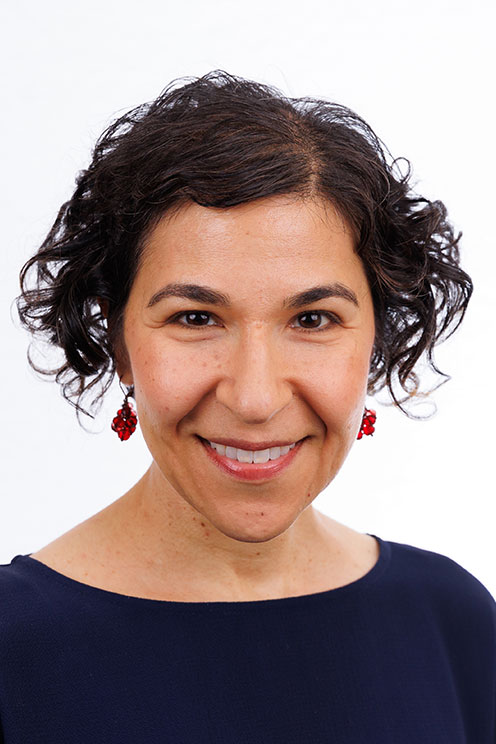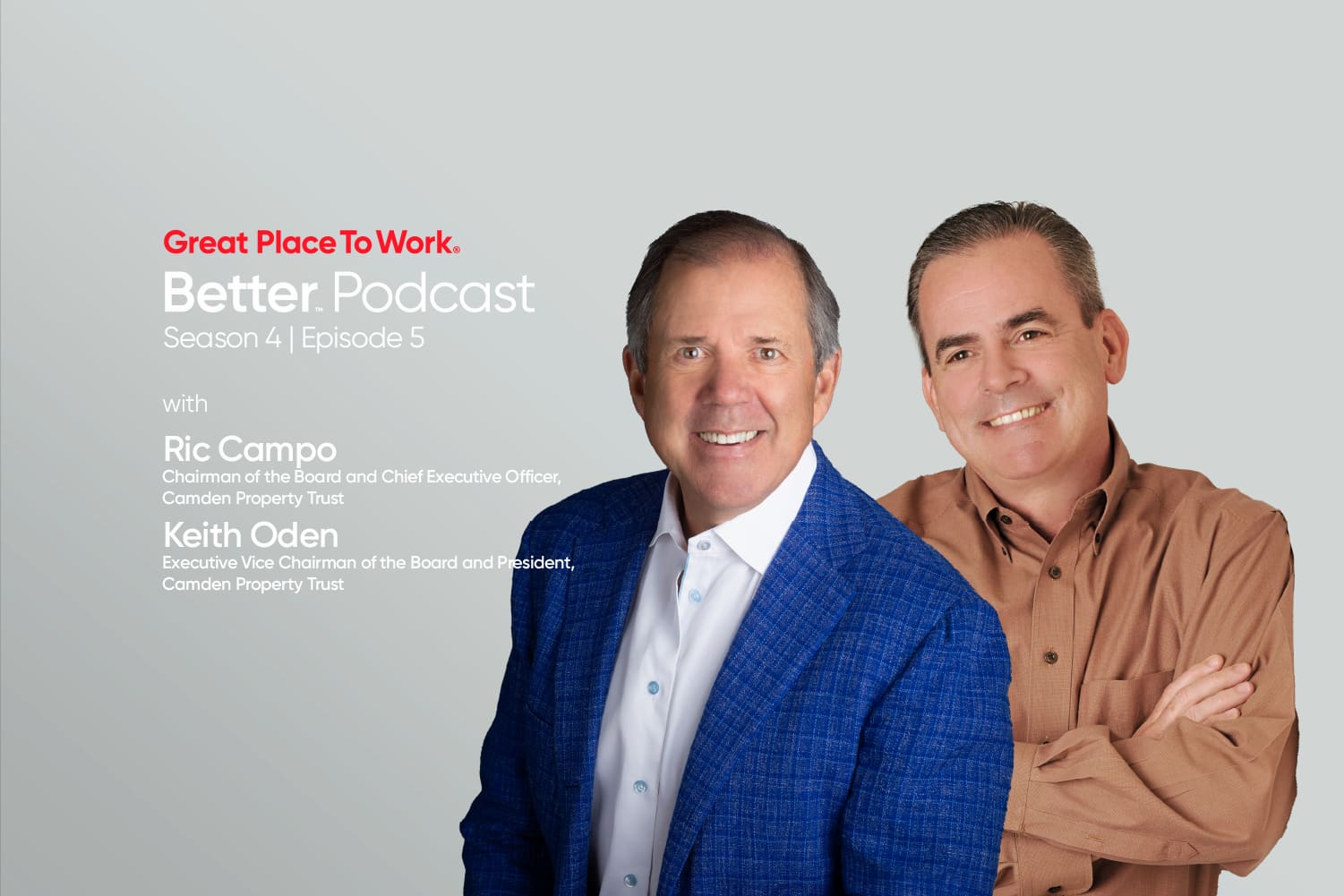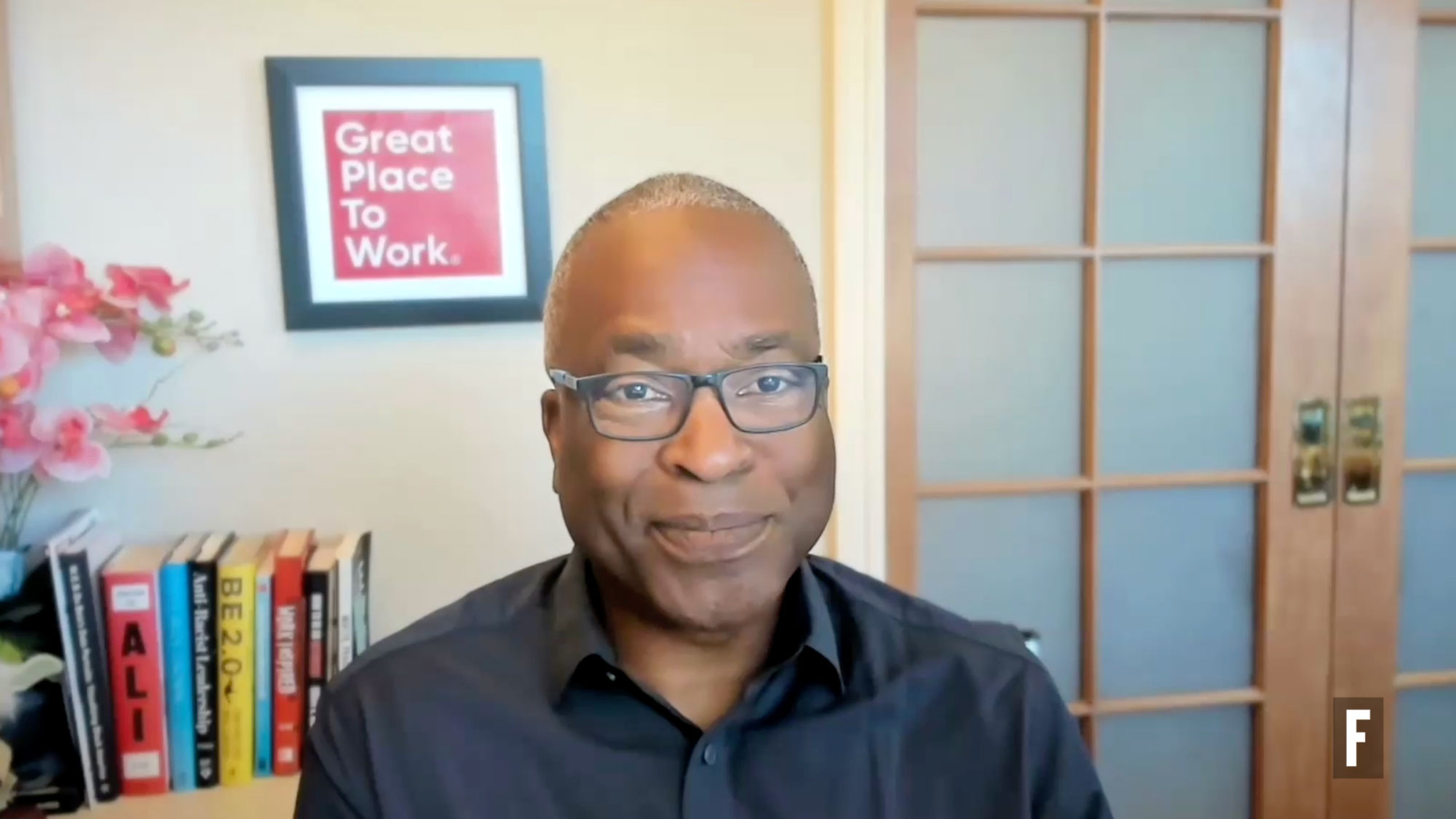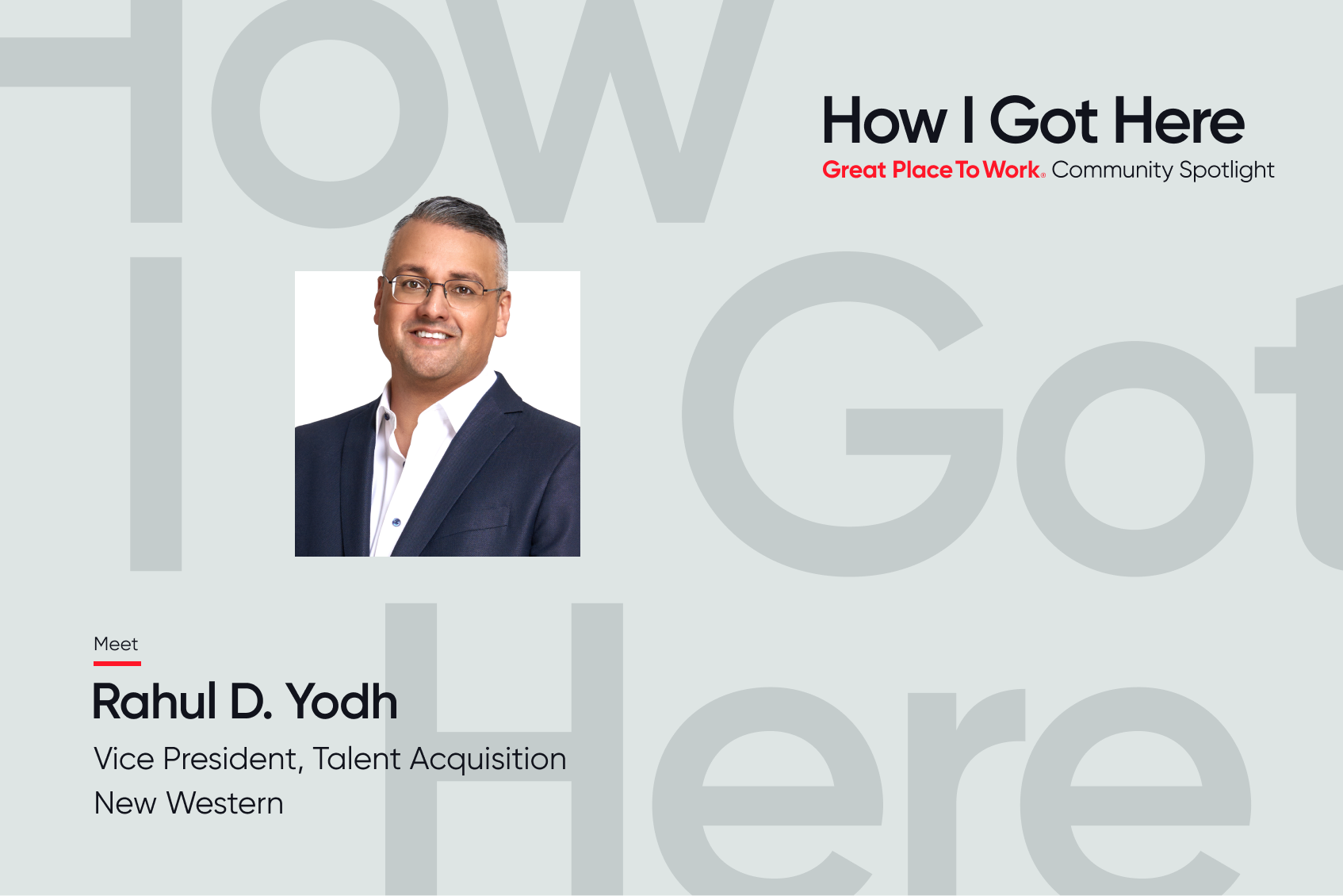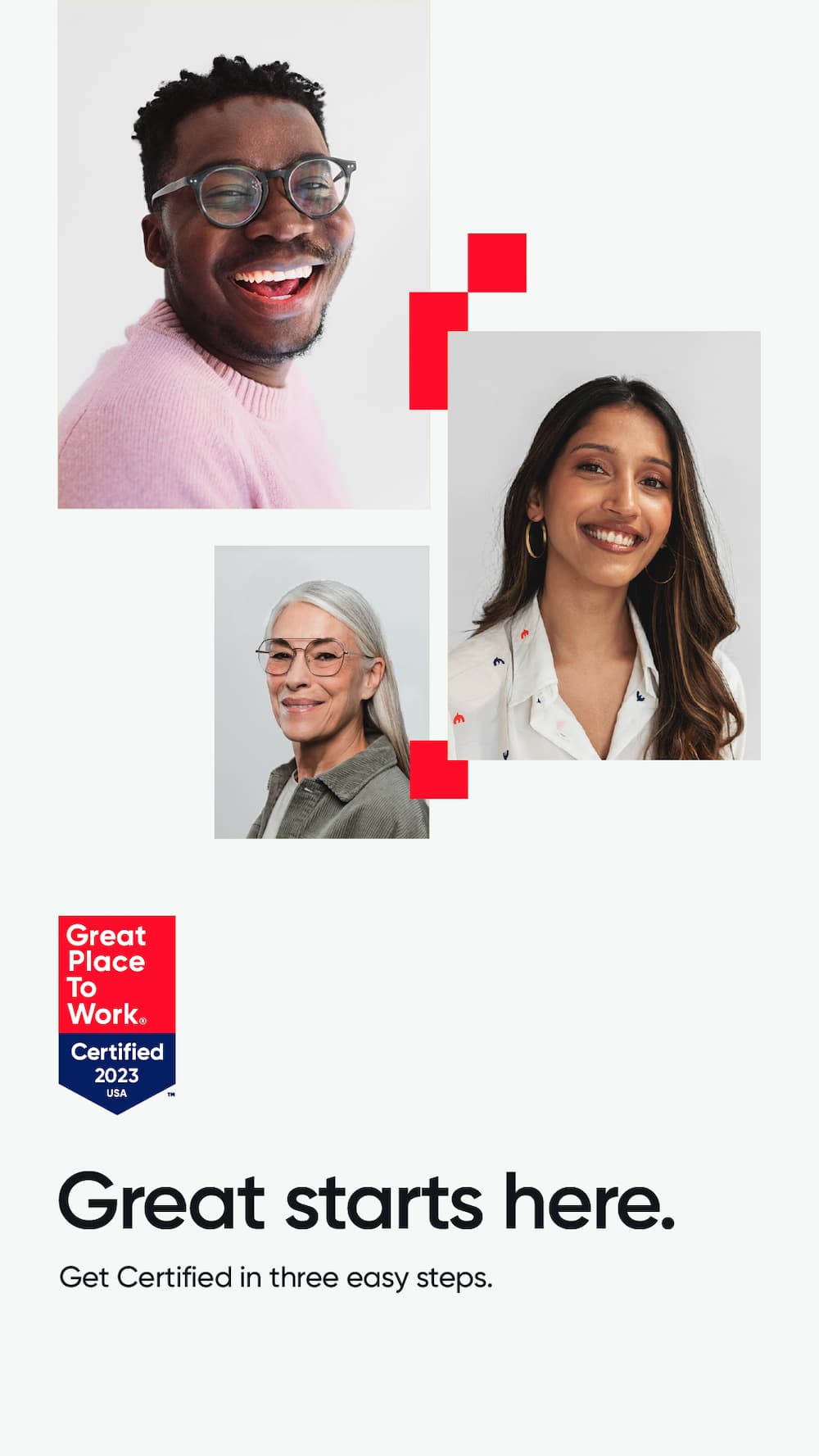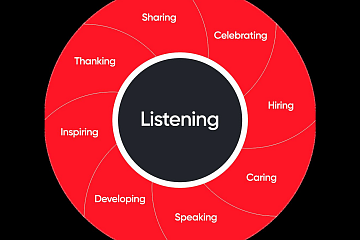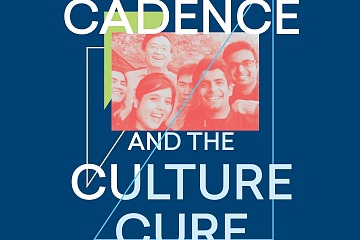Benefits of Company Culture, Caring , High-trust leadership, Leadership & Management
"Caring and culture improves your bottom line, and we can prove it and we have proven it many, many times."
On this episode of the Better podcast, we delve into how and why Ric Campo and Keith Oden, CEO and president, respectively, of Camden Property Trust have made care a business imperative.
They discuss how prioritizing a culture of care has led to their company's success, which stands in stark contrast to their previous experience of working in a "pirate ship" culture, where competition and self-interest were rewarded.
They’ve proven that a caring culture leads to better performance as employees are more engaged, productive, and committed to the company's success.
They also discussed their approach to workplace flexibility in an industry where flexibility hasn't been the norm.
On how working in a “pirate ship” culture influenced their leadership philosophy when they started Camden:
Campo: Our company culture was what Keith and I coined a "pirate ship” culture, and there wasn't a lot of collaboration in that culture. On a pirate ship, the way you move up is either somebody gets killed in the battle or you kill them yourself, and then you move up into the pirate ship. The higher you go, the more you get to share in the treasure.
So we sat down and said, let's figure out how to create a company that we want to work for a long time and where people would want to work for a long time — a collegial, family oriented place.
We've had a few anti-mentors where we learned what not to do, and we modeled what we wanted to do based on what we knew they would never have done. We've had a few of those in our business career and they've sort of shaped our view of how you create a winning culture and team where people actually care about each other.
On how care impacts the bottom line:
Campo: It's an absolute prerequisite for outperforming competitors. And the reason is that when people care about what they're doing and they care about their job, they do better and they work harder and smarter.
You can say care, but care has to start as a leadership quality. You have to say, we care and we're going to show care every single day in everything we do and every decision we make is filtered through: Is it fair? Is it just? Is it reasonable?
If you take Camden's total rate of return on our stock price over the last 20 years, we're in the top quartile of our peer group. And that outperformance is because when it's snowing in Washington D.C. or Denver, I've got maintenance people digging people's cars out on off hours because they care. That drives resident satisfaction, that drives shareholder satisfaction through high return.
On enforcing care among leaders:
Oden: The tenure of our senior leadership is truly extraordinary — 90% of our senior VPs have been with the company for 18 or more years. If you go down to the next level, our VP level, 90% of our vice presidents have been with Camden for 13 years or more.
When you have that kind of tenure, it has to be a part of your journey because you cannot progress in this company otherwise. If you're a leasing consultant and you don't care, you're never going to become an assistant manager. If you're an assistant manager and you don't care, you're never going to be a community manager. It's sort of self-enforcing at almost every level of the organization.
On how the Great Place To Work Trust Index™ survey helped build culture after not making the 100 Best List initially:
Oden: We took that information, we went back to all of our folks and said, okay, here's the result — the good, bad, and the ugly. And based on the results of this survey, we're going to make these concrete changes to our current approaches, policies, and procedures.
It resonated in a way with our folks, not just the survey, but the fact that we returned and reported. We said, here are the results, here's where we need to improve. How can you help us in our journey to make this happen?
Fast forward — the survey results come back the next year, they go up exponentially across the board, and we debut on the list at No. 50 and the rest of it has been a refinement of that process.
On giving people flexible work options in an industry where employees historically have to be onsite:
Oden: One of the things that we were already headed down the trail on prior to COVID was how do we provide more opportunities for advancement at the site level. The business model hadn't changed much in 100 years in multifamily property management.
We were going down trails to solve this problem before COVID, and the solution ended up being creating entirely new roles that didn't exist before. We created 40 purely remote jobs. We also have, at the corporate office, about 30% who are 100% remote positions. The rest of our folks are hybrid, which I think is where a lot of people have landed.
Campo: I was worried early on that the hybrid folks would get burned out or the fully remote people — because they're used to being onsite all the time and now they're remote — I was worried that we'd have higher turnover, but we've had lower turnover in those areas than we had with onsite positions.
The key is being intentional in making sure that you have events in and around where full-time remote people can go to get a taste of culture at an event that gives them a little shot of comradery.
Get more insights
Get more strategies from our workplace culture experts at our For All™ Summit, May 7-9 in New Orleans.
Subscribe to Better wherever podcasts are available so you don't miss an episode.
Welcome to Better by Great Place To Work, the Global Authority on workplace culture. I'm your host, Roula Amire, content director at Great Place To Work. I'm joined today by the two men who lead Camden Property Trust, a publicly traded multifamily real estate investment company. Ric Campo, CEO and board chair and Keith Oden, president and executive vice chair, join me to talk about why they've made care a business imperative, how they measure care, and how it impacts the bottom line. For any skeptics on the impact care has on the bottom line, their business returns are hard to argue with. These two are great storytellers and they shared a few tales of their time working in what they called a pirate ship culture and the impact that experience had as they built Camden from the ground up. This is a fun one. Enjoy.
Ric and Keith, nice to see you again. For our listeners, I took a trip to Camden about three months after I joined Great Place To Work, which was about two years ago. That's also the trip I met my boss for the first time and we were invited to be part of an employee recognition event and it was a lot of fun. But what stuck with me during that trip was writing about great culture is one thing, but seeing it lived was quite another. I remember I was at the salad bar and I was just chitchatting asking people, what do you do? Why do you like it here? And they talked about feeling like this was a family, feeling cared for. They had this big sense of purpose and pride in helping put people into homes. And I looked around, I was looking for their managers, if they were an earshot or the two of you, they didn't know who I was.
And I thought, is this real? It was my first exposure to a great workplace, but then I got the chance to sit down with the two of you at the end of our stay. And that's where a lot of the pieces of the puzzle came together for me. So that's where I'd like us to start. I learned your bond was forged when you were working at a not so great company, not having a good experience, and the two of you said, let's go off and start a company we'd want to work at. Correct me if I have that wrong, but I'd like you to briefly describe the culture you were working in and the kind of company you then set out to create.
Ric Campo:
Sure. You had it mostly right. We didn't leave the company. We bought the company through a leveraged buyout.
Roula Amire:
Minor detail.
Ric Campo:
Yeah, minor detail. So we started a division in this company that we worked at, and then we ultimately bought our division and became our own company. So the way I describe our company is its culture was what Keith and I coined as a, "pirate ship culture". And the pirate ship culture was that there wasn't a lot of collaboration and a pirate ship, the way you move up is either somebody gets killed in the battle or you kill them yourself, and then you move up into the pirate ship and the higher you are up in the pirate ship, the more you get to share in the treasure. And that was what our company was about. And I remember sitting with Keith and calculating how much time we spent in what was very productive piracy that we would actually implement on our own, making other people look bad, getting into meetings, things like that.
So it was a lot. It was like 40% of our time maybe, maybe more. The issue was that our management team allowed it and it wasn't about collaboration, it was just about who was in the right meeting and if you could make somebody look bad, you'll get a higher bonus or you get a bigger raise or you'll get more power and that kind of thing. It took a lot out of you. And ultimately when we got to the point where, and by the way, the company did very poorly in tough times because what happens to the pirate ship when it runs a ground is that people jump off the ship and try to find another place. And that happened to this company, people started jumping ship when the market got tough and things were tough, and so we learned a lot from that. A, how to treat people, B, how we didn't want to treat people.
And that people that really, when you had a great culture and a great experience, people would stay with you even during tough times and they understood that as long as you cared about them and you trusted them and they trusted you and you were fair and all that. So when we spun up, when we did our LBO, we sat down and said, let's figure out how to create a company that we want to work for a long time and where people would want to work for for a long time and we could create this really fun, collegial, family oriented place that people really wanted to work for. You could recruit really good people. And that's what we started out to do. Keith, I don't know if you want to add to that, but-
Keith Oden:
In the beginning it was just Ric and I and a part-time admin in the new company. And building a company from the ground up there are a lot of advantages to it because you get to select every one of your teammates, who do you want to work with, who you want to be with? And we went about it pretty systematically just trying to, every time we would hire someone and bring them on board, we would say, is this someone that we want to spend a lot of time with and that we want to be a member of our team going forward. So we had that advantage of starting from a very small platform, but being able to in the early days, be involved in every decision as to who we want to have join our team in this journey.
Roula Amire:
And you essentially did the opposite of the pirate ship, like all your decisions, your mindset.
Ric Campo:
Yes, absolutely. Because the pirate ship was, we spent a lot of time thinking about how to do well in the pirate ship and not how to do well as a company and how to nurture people and how get people to care about where they worked and care about the people that they worked with. And so we felt like it would be much better in that and we could be more productive as leaders and that the people we brought in could be more productive as a team if they continue to work together as a team. So we've had a few, what I call anti-mentors, which are really good mentors, but learned from them of what not to do. And then we modeled what we wanted to do based on what we knew they would never have done. And we've had a few of those in our business career and they've sort of shaped our view of how you create a winning culture and how you create a team where people actually care about each other.
Keith Oden:
And really to your point, we literally had those conversations in the early days, what would brand X do? Just do the opposite. And it became really clear what the positive direction would be. So it was interesting.
Roula Amire:
The business plan almost wrote itself in that sense. So because of that experience, let's talk about care. I know you made care a business imperative and we know care drives retention and pride and longevity and all the great measures of a great culture, but it also drives revenue. And so for leaders who think there must be something else you're doing to outperform your competitors, can you explain what would you say to them about care and how it does impact the bottom line?
Ric Campo:
Yeah, I think it's an absolutely prerequisite for outperforming competitors. And the reason is that when people care about what they're doing and they care about their job, and it is not just about I have a job and I get paid and that's a contractual relationship that I have with my employer and they actually really, really love what they do and they like the people they work with, they actually do better and they work harder and smarter. You can say care, but care has to start as a leadership quality.
You have to say, we care and we're going to show care every single day in everything we do and every decision we make is filtered through is it fair? Is it just, is it reasonable? Does it fit in that construct? If you take Camden's total rate of return on our stock price over the last 20 years, we're in the top quartile of our peer group. And that outperformance is because when it's snowing in Washington DC or Denver, I've got maintenance people digging people's cars out on off hours because they care. And that drives resident satisfaction, that drives shareholder satisfaction through high return.
Roula Amire:
There's a few follow-up questions I have, one of which those top of mind, I'll start there as I know you mentioned, I don't remember if it was you, Ric or Keith mentioned you'd buy properties across the street from your own that were underperforming and all that would change is basically, and again, if memory serves, you'd inject your culture into that property and then the revenue would go up. So we happen to be talking property, but for listeners it could be a department or an office or an area of business that's underperforming. And that's the difference a healthy culture can make.
Ric Campo:
So caring and culture improves your bottom line and we can prove it and we have proven it many, many times. When we buy properties, we try to buy properties in and around our current locations because A, we know the market. And B, we have operating efficiencies if we have more than one property. And so there's been multiple times where we purchased a property literally across the street on the other block and the operating fundamentals of the market are exactly the same. The properties are the same age, they're the same everything. And the difference is is that ours are managed with care culture and the view that our residents, it's their home and it's not just a place for us to make money. And the people across the street operate them as a place to make money. It was an investment, I buy it, I operate it, I sell it, I make money, I move on.
And the people that run it felt that, the operating people that are running that property. And when you bring the different culture in and the different mentality that this is more than a job. You are taking care of people's homes, you're part of Camden, our culture is about taking care of each other and taking care of our residents. Guess what happened? They improved customer service, they improved maintenance orders, they improved the way the customers felt about how they were being treated in the buildings. And guess what? They renewed more often.
When the market was moving up, they would be receptive to rental increases because they knew the value that they were getting was worth the rental increase they were paying because of the opportunity they had to have a great home. And so at the end of the day, once we infused the property with Camden culture, the cash flows became the same. The cash flow went up on the property that was lower than ours and the property was worth more to investors and therefore our shareholders made money and our employees got bigger bonuses and the residents got a better operating environment for their homes and everybody won in that circle and it was all culturally driven.
Roula Amire:
The other point I wanted to follow up with, and this is going to go to Keith, it's about leadership. So Ric, you mentioned leadership and the role leaders have in care. I know the both of you, you don't have separate executive tables at events. There's no corporate speak, people's names, you have people over to your homes. There's all of that. Leaders have to model the behavior they want to see in others. And that starts with the two of you. Keith, I don't know if you remember this, but I asked you, can you teach caring to leaders? Do you remember your answer?
Keith Oden:
Oh goodness. I don't remember specifically, but I'll take another swing at it unless you want to remind me.
Roula Amire:
I'll remind you and then you can take your swing. You said that you hadn't thought about it because you'd never get to be a senior executive at Camden if care wasn't one of their core values, right? So my question is, how do you make sure that leaders, that that's the case and leaders are modeling that behavior at every level of the organization? You're massive now. So how do you keep that level of care among your leaders?
Keith Oden:
So it really starts with the fact that our senior leadership, the tenure of our senior leadership is truly extraordinary. If you look at our senior vice president level, 90% of our senior VPs have been with the company for 18 or more years. If you go down to the next net level, our VP level, 90% of our vice presidents have been with Camden for 13 years or more. So when you have that kind of tenure and they've come up through the ranks in most cases in Camden's world, it has to be a part of your journey because you cannot progress in this company. If you're a leasing consultant and you don't care, you're never going to become an assistant manager. If you're an assistant manager, you don't care, you're never going to be a community manager. So it's sort of self enforcing at almost every level of the organization.
Obviously you have to attract talent, you have to get people in who have an attitude of caring as part of who they are. And there are a lot of different ways that you can attempt to get at that. But ultimately talking about caring is different than caring and it's actions, and people have to, our senior leadership, it's just an expectation that they model that message and that they are also applying the same standards to the people that work for them and then throughout the organization. One of the things that makes that pretty simple really is we have nine core values that we instilled in the company and it's part of our DNA. And these were 25 years ago, we literally sat down in an executive leadership meeting and spent an entire really a day and a half distilling down what's the essence of Camden, what's the essence of our culture?
And those nine values are in some respects are just rules of the road. This is how we expect, this is the behavior that we expect from someone who's working at Camden Property Trust. And we tell people, hold each other accountable for the values, for living the values and also hold leadership accountable for making sure that the values are being followed. So it's a pretty simple way for people to say, am I on the right track on this decision? Is this something that the company would approve of? Because everybody's playing by the same rules. And that sort of gets back to the earlier conversation about the pirate ship and there really were no rules. We wanted to be very clear about what the rules are. And then we wanted to make sure that leadership is not only holding people accountable, but they are also held accountable to include me and Ric and our senior leadership team.
Ric Campo:
Let me follow up on that hold accountable because it reminded me of a situation because you're never going to have everybody agree on everything all the time. People silo, you have big organization, you got one department trying to do something versus another department and maybe their priorities aren't the same in terms of that day or that week or month or whatever. And so what you have to do is hold people accountable. This is the teaching caring maybe to a certain extent. And the way you do it is, and I remember, Keith, you'll remember this instance, we had two really, really productive and smart people that were really great Camden folks, but they were having issues and you could tell. They would bristle in meetings, they would snip at this and that and you could just tell there was tension and then it was bubbling to the point where it became just thick in a room when they were together.
And so finally I said to Keith, I go, we got to figure this out. And he goes, well go figure it out with them. And so I took them in my office and I had multiple conversations, very casual, reasonable conversations, didn't change the behavior. And then finally I got to the point where I brought them in my office. I said, okay, here's the deal. This has got to stop and there's going to be one of three things that's going to happen. One, you're going to figure this out and you're going to live by the values and you're not going to have this kind of tension anymore. That's my hope.
The second thing that might happen is one of you is going to get fired and the third thing that might happen is both of you might get fired if you can't get to number one. So you get that, right? And they were like, well, it's their fault. And you know what happened? They got to number one and there was never a problem again. And so oftentimes there is coaching, there is tension that happens when somebody is getting out of their lane or they're not true to those values, or they show something that is not in the middle of the Camden culture fairway and you got to bring them back in or you have to do number two or number three.
Roula Amire:
Yeah.
Ric Campo:
Right?
Roula Amire:
Yeah. They're either going to walk in the door or back to their office or they're going to walk out the front door, but there's a door they're going through after that meeting.
Ric Campo:
And to me, that's part of leadership. It's saying, here are the rules of the road and we're going to really believe it. If you don't enforce the rules of the road and there aren't consequences for not being a team player or being in the care fairway, then you're not going to get there. You're going to allow to outliers mess that process up and you have to either bring the outliers in or make sure the outliers go somewhere else.
Roula Amire:
Hey, better listeners, want to put your headphones down and meet culture leaders in person, network and learn from the most innovative companies across every industry? Hear from bestselling authors like Angela Duckworth and the Emmy nominated actress, Mindy Kaling? Then mark your calendars May 7th through 9th and join us in New Orleans at the Great Place To Work For All Summit. The can't miss company culture and leadership event of the year. Use the code better2024 to save $200 off registration before April 7th. Find the code and link in our episode bio. See you there.
Camden has been on the Fortune 100 best list for more than 15 years. You are the number one company to work for in real estate. You've had repeat appearances on People Magazine's Companies That Care lists and many other lists. Too many to name. I don't believe, again, this whole podcast is a test of my memory. I don't believe you made the 100 best lists initially, but you did in your second attempt and all the years since. And I know people have asked you, well, I can just imagine they would, what the secret is to making these lists. What do you tell them? What did you change to then make the list and then be so consistent on all these lists?
Keith Oden:
The list is a Camden story of its own and our first submission and application to GPTW, it's an interesting story. We had an executive leadership meeting and we had a couple of outside facilitators and most of the two-day meeting was not memorable at all. And if it was memorable, it's not for particularly good reasons. But the one thing they did at the end of the meeting was this exercise where everybody that was there at the meeting and there were probably 30 of us there at the meeting, had to come prepared with something that they referred to as taking a stand. And the way they described it was a stand is not a goal, it's not a hope or a wish or an objective. A stand is something that you are so passionate about, but it's an outrageous goal, not just a stretch goal, but sort of an outrageous goal.
And the only way you're ever going to get there is to enroll everybody in the leadership in the pursuit of your goal. So we had to get up in front of our group, each of us individually, describe what our stand was, and then ask everybody else to support us in our stand. And a lot of really interesting and compelling things came out of it. And my stand that I took was actually based on my brother-in-law who at the time was a president of Sterling Bank and Sterling Bank if you go back in the archives, they actually were on the GPTW list for a year or two. They're a regional bank here in Houston, very well run. I knew them and I knew the company and I'd been around them for a long time and they actually were on Fortune's list. And I remember my brother-in-law telling me about it.
And I thought to myself, they're a good company and they're a good bank and my brother-in-law's a really good person, but I think Camden is every bit as good as Sterling Bank is. So I put that together with I need to have a stand. And I said, my stand was within the next two years, Camden Property Trust is going to be nationally recognized as a great place to work. Now, at the time, I had no idea how outrageous that exclamation was that we were going to do this in two years, but what the heck. It's a stand. And we started down the process and ultimately, Cindy Scharringhausen, who's the star of the entire first two or three acts of our GPTW journey, took it as her boots on the ground mission.
She put together the application and we did not get on the list the first year, but through the survey process and the results of the survey, fortunately for us as a company, we'd been doing third party administered surveys for 15 years before we made the GPTW submission. So our culture was already attuned to surveys, anonymous I'm going to tell you what I think, and they expect us to act on that. And we had a history of doing that. So we did that. We took, y'all surveys, by the way, was way better than the one that we had been using with this third party. It was way better. We got way better information.
We took that information, we did what we always do, we went back to all of our folks and said, okay, here's the result. Here it is. Good, bad, and the ugly. And based on the results of this survey, we're going to make these concrete changes to what our current approach approaches, policies, procedures, some other things. But it resonated in a way with our folks, not just the survey, the process, but the fact that we returned and reported. We said, here are the results. Here's where we need to improve. How can you help us in our journey to make this happen? So fast-forward, the survey results come back the next year, they go up exponentially across the board, and then we debut on the list at number 50 and that's it. And the rest of it has been a refinement of that process.
Ric Campo:
Just to add a tiny tail to that story, is that, so we started at number 50, then I think we went to number 40 something and then the next year, and then all of a sudden you had the financial crisis, right? The great financial crisis.
Roula Amire:
2008.
Ric Campo:
Yes. And we went from the forties to number 10, and the financial crisis was the worst real estate debacle that Keith and I have faced in 30 years as a company overall, it was awful. Our stock price collapsed. Occupancies went down, rents fell, massive layoffs in America. Our employees lost their homes. A lot of people lost homes and stuff. And yet we went to number 10 and it was like, how's that possible? And I think what happened was was that we were deer in the headlights for sure. We, Keith and I early, then all of a sudden we saw that the world had deer in the headlights and they were not taking care of their employees.
So we pivoted. And even though we wanted to throw up in the garbage can multiple times because of what was going on, we never let our employees see that. We never took our eye off the ball. We said, look guys, you need to relax. We're going to all get through this together. That's when we started our employee relief fund. That's when we started working really hard on telling people, don't worry. We know how to get through this. We're going to be okay.
And we came up with a list of things we told people, make sure you embrace your significant other, your spouse, your boyfriend, girlfriend, whatever, and tell them that life's going to be okay. And don't watch the news. Don't listen to people kibitz about how bad the world's going to be. We'll be all right as long as we stay as a team. And all of a sudden people went, oh my God, you got me through that. That was awesome. And then our scores went up dramatically in Great Place To Work. I think we were in the top 10 for four or five years. And it was just because we told people, don't worry about it, we care. And you can take that to the bank. And they did, which was pretty interesting when you think about it.
Roula Amire:
That was before we talked about employee wellbeing and mental health. That's what you were kind of telling your people, take care of yourself, lean into your families, we're going to be okay. You are speaking to their worries and their fears.
Keith Oden:
Camden, and this was the assurance that we were able to give them is we were never, Camden was never anywhere close to being in financial difficulty. Never. It felt worse because the rest of the world, a lot of the rest of the world really was in financial jeopardy. But that wasn't the case for us. And we had that assurance to be able to tell people as Ric said, that you're going to be fine. Take care of yourself, get in the best shape of your life, do all the other things he said.
And somebody, and I think it was our Dallas office actually produced a video and it was the intro of the original Star Wars, the scrolling video where it went through all the elements of the great financial crisis. And then at the end of it said something like, this isn't our first rodeo. Follow us. We know the way, Ric and Keith. And so that video became sort of Camden legend of the lore. But that was the message, and we spread that message far and wide at all of our company events. And I think just the reassurance and then kind of putting it in a context that people saw us in a way that it's going to be okay. It's going to be okay.
Ric Campo:
I had people for years would come up to me and say, you saved my marriage. I'm like, what are you talking about? Well, yeah, we were fighting over money and it was crazy. Then I just went home and shut the TV off. We didn't read the Wall Street Journal. We didn't do any of that. We focused on ourselves and we made it through. And I'm like, wow, cool.
Roula Amire:
That's the result of trust. That is what trust in the workplace looks like. If you don't have a leader you trust and someone says, follow me, I'm out of there. I'm not going to follow them. They don't have a history of care and trust. So that's the outcome of what that looks like. That's why you go from 40 to 10 in those difficult hard times. I want to touch on a topic that's top of mind in the workplace now, which is flexibility. How have you found ways to give your people flexible work options in an industry where employees, depending on their role, have to be onsite often? How do you measure the impact of the flexibility they get on their employee experience?
Keith Oden:
So one of the things that we were already headed down the trail on prior to the COVID two years where it accelerated a lot of things was how do we provide more opportunities for advancement at the site level? The property management business, the business model hadn't changed much in a hundred years in multifamily, which is you have a community manager and then you have staff that report to that community manager. Typically, you have maintenance employees, then you have leasing consultants, an assistant manager, and the assistant manager role was just really an apprentice role for the property manager. So you have leasing consultants, the order historically has been leasing consultant, entry level job, learn the business, but you're purely a salesperson. The only next jump for a leasing consultant in the multifamily world in the what old way was, an assistant manager. Assistant manager is basically a clerical job.
So you're taking people who are naturally sales oriented, love what they're doing people, and then you say, in order for you to be a community manager, you need to serve your three or four years as an assistant manager in a job that probably you don't like and you're probably not really great at. But the reward is you get to be a community manager. So we were going down trails to solve this problem long before COVID and the solution to the problem ended up being creating entirely new roles that didn't exist before. We now have leasing consultants. Their next step is to be a sales manager. So you never have to, if that's your calling and that's your red thread that moves you, you never have to leave the sales position. But the outgrowth of that was we also created something called an operations manager. And an operations manager basically does all the things that the assistant manager role used to do, plus some additional things. With technology and post COVID, the operations manager, which would've been the old assistant manager role, which would've had to have been at the community.
All of those are remote jobs. We created 40 purely remote jobs that really couldn't have been done if we hadn't had started down that trail in COVID. We also have, at the corporate office, corporate and regional employees, about 30% of our total workforce are 100% remote positions. Contact center, a lot of our IT staff, if they want to be, they can be a hundred percent remote. And then the rest of our folks are, we've come up with a hybrid solution, which I think is where a lot most people have landed. We expect people to be in the office Tuesday, Wednesday, Thursday if your team needs you to be there. It's obviously up to discretion of the department manager to set hours and attendance on Monday and Friday, but we've really leaned into the commute that folks have. Just the flexibility of not having to come to the office from, because a lot of our folks are, the only way that their life works for them is to live in the suburbs where they can afford a home and have their kids or their children in a school district that makes sense for them.
But most of them in and around the Houston area, I'm sure it's no different where we all are. If you're living out in the Hinterlands because that's where you can afford a home, you're driving an hour and 15 minutes to work each day, it's just dead time and it creates all kinds of stress and unnecessary complexity. So that's where we've landed. It's really important. Our folks have responded incredibly well to it. It's really hard for me to imagine a world three or four years or 10 years from now where we're not still in some kind of a hybrid mode because we've proved it can work. We've also proven the biggest concern we had, and most companies had that concerned themselves with their company's culture was what's the impact on the culture going to be? Can you maintain all of those reasons why people want to work for this company in the first place? Can you do that in a three-day hybrid environment? We've proven to ourselves, not anybody else, we've proven to ourselves and our employees that it can work and has worked and will work.
Ric Campo:
I was worried early on about the hybrid folks that they get burned out or the fully remote people that in the shared services group that Keith talked about, because they're used to being onsite all the time and now they're remote, and I was worried about turnover and that we'd have higher turnover in those areas, and we've had lower turnover in those areas than we had an onsite positions. And just anecdotally, the key is making sure there are touch points where the fully remote people can come in to an event at a property or an event. The key is being intentional in making sure that you have events in and around where the remote people that are full-time remote can go get a taste of culture or a day of culture at an event or at a lunch or some Camden thing that gives them a little shot of comradery and things that you don't get if you're fully remote.
Roula Amire:
What advice would the two of you go back and give your younger selves?
Keith Oden:
For me, it would be to enjoy the journey. I feel like I spent, Ric and I both probably, if I'll speak for myself, spent a lot of our formative years, early years, just sort of getting through with an idea of saying, if I just get to this, then I'll do that. And it was more about getting to a new segment of my life than it was, just enjoy this one. Hopefully there'll be a lot of segments and fortunately I've gotten a whole lot better about that, and the result of which is my last 20 or 25 years or so have been a lot more, I think a lot more enjoyable for me and probably my wife.
Keith Oden:
Enjoy the journey. Every stage of life can be, if you're kind of intentional about it, can bring you a lot of joy.
Roula Amire:
Yeah. Keith, you gave me a great idea of having the wives on one episode, and then I will really know how it's going at Camden.
Keith Oden:
There you go.
Ric Campo:
Yeah, I think you'd have a lot of fun with them, both of them. They're very different in different ways, but a lot of fun. And they both are very infused in Camden's culture, but they don't have a clue about the inner workings of the business ever, which is great.
Roula Amire:
Perfect. Well, thank you both. Thanks for joining the podcast today.
Ric Campo:
Well, I appreciate it. Good fortune going forward. Hopefully we'll cross paths soon.
Keith Oden:
Our pleasure. Thanks, Roula.
Roula Amire:
Thanks for listening. If you enjoy today's podcast, please leave a five star rating, write a review, and subscribe so you don't miss an episode. You can stream this and previous episodes wherever podcasts are available.
